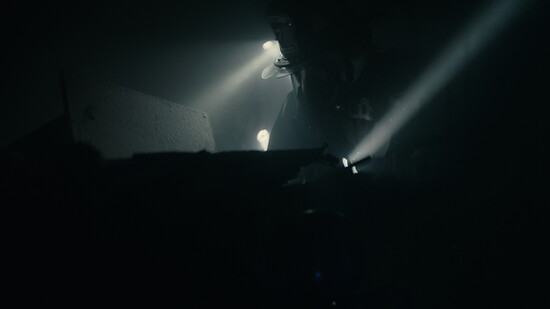When Allen Fire Chief Jonathan Boyd teamed up with filmmaker Josh Gallas of Prelude.tv, they set out to tell a story bigger than firefighting. The result was Smoke, an award-winning short film that explores the hidden toll of trauma on first responders, their marriages, and their families.
The film follows a firefighter returning home after the worst shift of his career—forced to switch instantly from the weight of tragedy to the role of husband and father. For Gallas, the story was personal. His wife, an ICU nurse during COVID-19, often came home devastated from long, grueling shifts. “She didn’t know how to process what she was seeing every day,” Gallas said. “That put a huge weight on our marriage. We had to learn new ways to talk, listen, and heal together.”
Chief Boyd immediately saw the importance of the project. “Firefighters don’t always have healthy ways to deal with what they experience,” he noted. Grounding the film in everyday struggles of communication—rather than dramatic spectacle—Gallas and his team created something both relatable and deeply moving.
Smoke has been adopted by fire departments nationwide as part of their training curriculum to teach new recruits how not to bury their pain but to talk about it.. The film has been selected for more than 20 film festivals worldwide and has earned numerous awards, including Best in Show at the El Dorado Film Festival, the Special Jury Prize for Cinematography and Direction at the Dallas International Film Festival, and Best Texas Short at the Austin International Film Festival.
For Allen, Smoke is more than a film. It’s a reminder that trauma touches everyone, not just first responders. Whether in hospitals, homes, or businesses, the challenge of communication in the face of hardship is universal. We all benefit by increasing our ability to process trauma and hold space for difficult discussions.
Gallas and his team are now developing Smoke into a feature-length film, ensuring its message will reach even further.
Chief Boyd immediately saw the importance of the project. “Firefighters don’t always have healthy ways to deal with what they experience,”
